
Destry Rides Again is a 1939 American Western comedy film directed by George Marshall and starring Marlene Dietrich and James Stewart. The supporting cast includes Mischa Auer, Charles Winninger, Brian Donlevy, Allen Jenkins, Irene Hervey, Billy Gilbert, Bill Cody Jr., Lillian Yarbo, and Una Merkel.

Bonnie Elizabeth Parker and Clyde Chestnut (Champion) Barrow were American criminals who traveled the Central United States with their gang during the Great Depression. The couple was known for their bank robberies, although they preferred to rob small stores or rural funeral homes. Their exploits captured the attention of the American press and its readership during what is occasionally referred to as the "public enemy era" between 1931 and 1934. They were ambushed by police and shot to death in Bienville Parish, Louisiana. They are believed to have murdered at least nine police officers and four civilians.
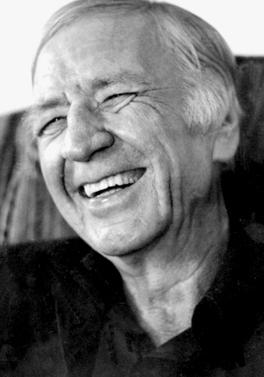
James Myers Thompson was an American prose writer and screenwriter, known for his hardboiled crime fiction.
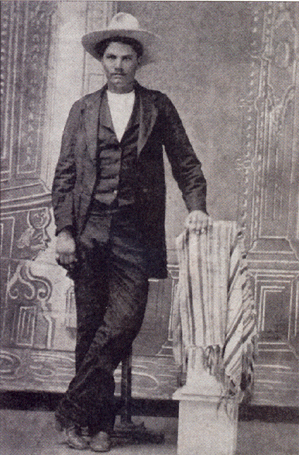
John Wesley Hardin was an American Old West outlaw, gunfighter, and controversial folk icon. Hardin often got into trouble with the law from an early age. He killed his first man at the age of 15, claiming he did so in self-defense.

Denver Dell Pyle was an American film and television actor and director. He was well known for a number of TV roles from the 1960s through the 1980s, including his portrayal of Briscoe Darling in several episodes of The Andy Griffith Show, as Jesse Duke in The Dukes of Hazzard from 1979 to 1985, as Mad Jack in the NBC television series The Life and Times of Grizzly Adams, and as the titular character's father, Buck Webb, in CBS's The Doris Day Show. In many of his roles, he portrayed either authority figures, or gruff, demanding father figures, often as comic relief. Perhaps his most memorable film role was that of Texas Ranger Frank Hamer in the movie Bonnie and Clyde (1967), as the lawman who relentlessly chased down and finally killed the notorious duo in an ambush.
Push, Nevada was an American mystery television series set in the fictional town of Push, Nevada. It premiered on September 17, 2002 on ABC, and ran for 7 episodes before it became one of the first shows to be canceled during the Fall 2002 season.

Accomplice is a 1946 American thriller film directed by Walter Colmes and starring Richard Arlen, Veda Ann Borg, Tom Dugan, and Archie Twitchell. The film, from Producers Releasing Corporation (PRC), was shot in four days. The film is written by Frank Gruber, based on his novel Simon Lash, Private Detective.

Francis Augustus Hamer was an American lawman and Texas Ranger who led the 1934 posse that tracked down and killed criminals Bonnie Parker and Clyde Barrow. Renowned for his toughness, marksmanship, and investigative skill, he acquired status in the Southwest as the archetypal Texas Ranger.

Still Life with Crows is a thriller novel by American authors Douglas Preston and Lincoln Child, released on July 1, 2003 by Grand Central Publishing. It is the fourth novel to feature FBI Special Agent Pendergast as protagonist.

Texas Lady is a 1955 color American Western film directed by Tim Whelan in his final film before his death in 1957, and distributed by RKO Radio Pictures. It stars Claudette Colbert, Barry Sullivan and Ray Collins. The film tells the story of a female publisher who encounters injustice and violence in a Texas town.
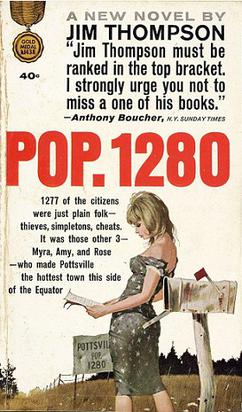
Pop. 1280 is a crime novel by Jim Thompson published in 1964.
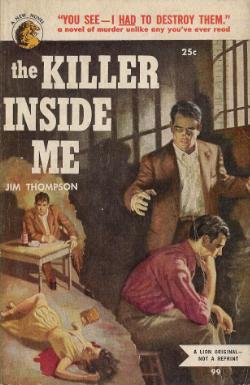
The Killer Inside Me is a 1952 novel by American writer Jim Thompson published by Fawcett Publications.
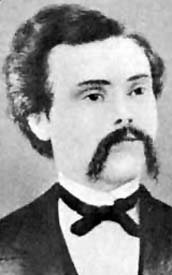
Alexander McSween was a prominent figure during the Lincoln County War of the Old West, and a central character, alongside John Tunstall, in opposing businessmen and gunmen Lawrence Murphy and James Dolan.
Billy Thompson, sometimes known as Texas Billy Thompson was an Old West gunman and gambler, and the younger brother of the famous gunman and lawman Ben Thompson. The younger Thompson brother never achieved the fame that his brother achieved, and in his own lifetime was mainly referred to as the unpredictable and troubled younger brother of Ben Thompson. Factually, however, while a dangerous man, he also was a formidable opponent in a gunfight.
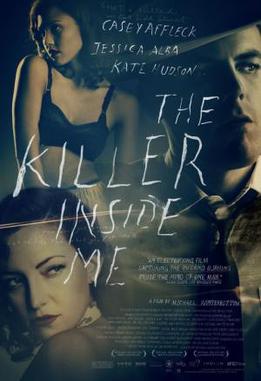
The Killer Inside Me is a 2010 American crime drama and an adaptation of the 1952 novel of the same name by Jim Thompson. The film is directed by Michael Winterbottom and stars Casey Affleck, Jessica Alba, and Kate Hudson. It is the second film adaptation of Thompson's novel, the first being 1976's The Killer Inside Me, directed by Burt Kennedy.

Lonesome Dove is a 1989 American epic Western adventure television miniseries directed by Simon Wincer. It is a four-part adaptation of the 1985 novel of the same name by Larry McMurtry and is the first installment in the Lonesome Dove series. The novel was based upon a screenplay by Peter Bogdanovich and McMurtry. The miniseries stars an ensemble cast headed by Robert Duvall as Augustus McCrae and Tommy Lee Jones as Woodrow Call. The series was originally broadcast by CBS from February 5 to 8, 1989, drawing a huge viewing audience, earning numerous awards, and reviving both the television Western and the miniseries.

The Wild and the Innocent is a 1959 American CinemaScope Western film directed by Jack Sher and starring Audie Murphy and Sandra Dee as two inexperienced young people who get into trouble when they visit a town for the very first time. The film was the final Universal-International film shot in CinemaScope.

The Killer Inside Me is a 1976 American neo-noir crime drama film directed by Burt Kennedy and based on Jim Thompson's novel of the same name. In this adaptation, the action was shifted from the west Texas oilfields to a Montana mining town, and several other changes made. It stars Stacy Keach, Susan Tyrrell, and Tisha Sterling.

Go West, Young Lady is a 1941 American comedy Western film directed by Frank R. Strayer and starring Penny Singleton, Glenn Ford and Ann Miller.
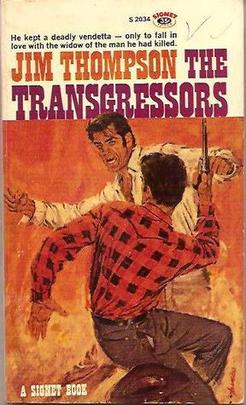
The Transgressors is a crime novel by Jim Thompson, published in 1961. It is one of a very few Thompson novels to feature a traditional love story as a major part of the plot where the lovers have a happy ending together rather than one murdering or betraying the other as is the norm in most of Thompson's novels. As with most of Thompson's novels it takes place in the Southwest (Texas) where Thompson grew up and it leverages Thompson's diverse life experiences in creating the characters and situations in a community dominated by the oil industry.
















